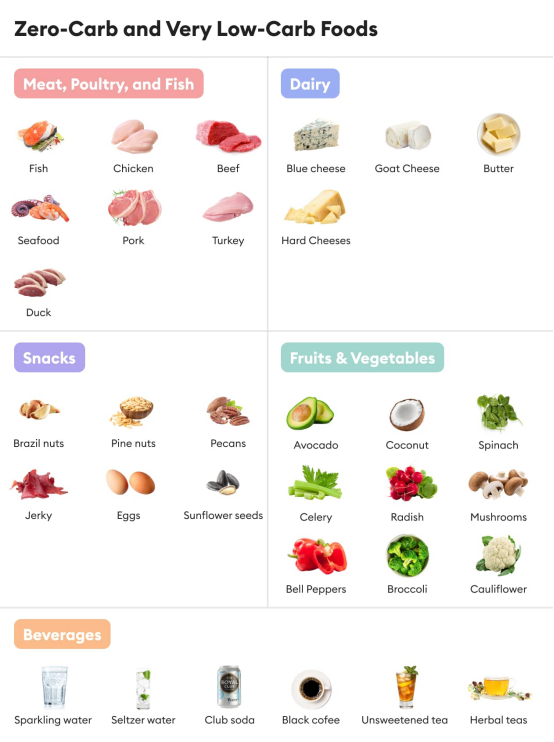Celebrity Success Stories, and Scientific Insights
Weight loss is a goal that countless individuals aspire to achieve, driven by a multitude of reasons. Whether it's for the sake of enhancing health, boosting self-esteem, or simply experiencing an overall sense of well-being, the pursuit of shedding excess pounds is a common endeavor. However, in a world inundated with an overwhelming array of diets, workout regimens, and fleeting weight loss fads, it can be an arduous task to determine where to commence this transformative journey. In this comprehensive article, we will meticulously break down the most effective weight loss methods, share inspiring success stories from renowned celebrities, and delve deep into the scientific underpinnings of weight loss to equip you with the knowledge and inspiration needed to navigate your own path to success.

Effective Weight Loss Methods
1. Dietary Approaches
Low-Carb Diets
Low-carb diets, such as the ketogenic diet and Atkins diet, have surged in popularity in recent years, and for good reason. By severely limiting carbohydrate intake, these diets compel the body to shift its primary energy source from glucose to fat. This metabolic shift can lead to significant weight loss and a host of improvements in metabolic health. Research has shown that low-carb diets can result in reduced blood sugar and insulin levels, which is particularly beneficial for those at risk of or already suffering from diabetes. For example, individuals following a ketogenic diet might consume high amounts of healthy fats like avocados, nuts, and olive oil, along with moderate amounts of protein from sources such as lean meats and eggs, while drastically reducing their intake of carbohydrates like bread, pasta, and sugar.
Intermittent Fasting
Intermittent fasting has emerged as a powerful tool for weight loss and overall health improvement. This approach involves alternating periods of eating with periods of fasting. Popular methods include the 16/8 method, where you fast for 16 hours and eat within an 8-hour window, and the 5:2 method, which entails eating normally for five days and restricting calories on two non-consecutive days. Studies have suggested that intermittent fasting can not only promote weight loss but also enhance metabolic health and potentially even extend lifespan. By giving the digestive system a break and allowing the body to tap into its fat stores for energy, intermittent fasting can help regulate hormones involved in hunger and satiety, leading to more controlled eating patterns.
Balanced Diet
A balanced diet remains the cornerstone of sustainable weight loss. This approach emphasizes consuming a diverse range of nutrient-rich foods, including lean proteins, whole grains, fruits, and vegetables. By ensuring a proper balance of macronutrients (carbohydrates, proteins, and fats) and an abundance of micronutrients (vitamins and minerals), a balanced diet supports long-term weight loss. It helps you manage calorie intake without sacrificing essential nutrients, which is crucial for maintaining overall health. For instance, incorporating foods like grilled chicken, brown rice, colorful salads, and fresh fruits into your daily meals can provide the necessary fuel for your body while keeping calorie levels in check.

2. Exercise Regimens
Cardiovascular Exercise
Cardiovascular workouts are a tried-and-true method for burning calories and improving cardiovascular health. Activities such as running, cycling, and swimming increase heart rate and calorie expenditure, making them essential for weight loss. The American Heart Association recommends at least 150 minutes of moderate-intensity or 75 minutes of high-intensity cardio each week. Whether it's going for a brisk jog in the park, taking a spin class at the gym, or swimming laps in a pool, engaging in regular cardiovascular exercise can help you shed pounds and keep your heart healthy.
Strength Training
Strength training is often overlooked in weight loss plans, but it plays a crucial role in building muscle mass and boosting metabolism. Exercises like weight lifting and bodyweight exercises are effective for increasing muscle mass, which in turn enhances your resting metabolic rate. This means that even when you're not exercising, your body burns more calories. Incorporating strength training into your routine can also improve body composition by reducing body fat and increasing lean muscle mass, leading to a more toned and fit appearance.
High-Intensity Interval Training (HIIT)
HIIT has gained popularity for its efficiency and effectiveness in burning calories and improving fitness. This method consists of short bursts of intense exercise followed by periods of rest or low-intensity activity. Research shows that HIIT can be more efficient than steady-state cardio for fat loss and may require less time commitment. For example, a typical HIIT workout might involve 30 seconds of all-out sprinting followed by 90 seconds of walking or slow jogging, repeated for several rounds. HIIT not only burns a significant amount of calories during the workout but also continues to boost metabolism for hours after, making it a powerful tool for weight loss.

3. Lifestyle Adjustments
Sleep
Quality sleep is an often-underestimated but essential factor for overall health and weight management. Poor sleep can disrupt hormones that regulate hunger and appetite, leading to increased cravings and weight gain. Aim for 7-9 hours of sleep per night to support weight loss and overall well-being. Establishing a regular sleep schedule, creating a relaxing bedtime routine, and ensuring a comfortable sleep environment can all contribute to better sleep quality.

Stress Management
Chronic stress can have a negative impact on weight by increasing cortisol levels. Elevated cortisol can lead to emotional eating and weight gain. Finding effective stress management techniques, such as mindfulness meditation, yoga, or deep breathing exercises, can help you maintain a healthy weight and improve mental health. By reducing stress levels, you can better control your eating habits and make more conscious choices about your diet and lifestyle.

Hydration
Proper hydration is crucial for supporting metabolism and controlling appetite. Drinking water before meals can reduce calorie intake and promote a feeling of fullness. Aim to drink at least 8 glasses (about 2 liters) of water daily to stay hydrated and support your weight loss efforts. Additionally, staying hydrated can improve digestion, boost energy levels, and enhance overall physical performance.
Celebrity Weight Loss Success Stories
1. Jennifer Aniston
Jennifer Aniston, beloved for her role on "Friends," has been open and candid about her fitness and weight loss journey. Her approach combines a balanced diet with regular exercise and good hydration. Aniston's diet is rich in lean proteins, vegetables, and whole grains, which help her maintain a healthy weight. Her exercise routine includes a mix of cardio, strength training, and yoga, promoting overall fitness and well-being. For instance, she might start her day with a yoga session to stretch and relax, followed by a cardio workout like running or cycling, and then incorporate strength training exercises using weights or resistance bands.
Key Takeaways:
- Diet: Lean proteins, vegetables, and whole grains.
- Exercise: Cardio, strength training, and yoga.
- Hydration: Drinking plenty of water.


2. Chris Pratt
Chris Pratt's remarkable transformation for his role in "Guardians of the Galaxy" is a testament to his dedication and hard work. Pratt's weight loss journey involved intense workouts, including weight lifting and high-intensity cardio. His diet focused on high protein and low carbohydrates, consisting primarily of lean meats and vegetables. Additionally, Pratt made significant lifestyle changes, such as improving his sleep habits and reducing alcohol consumption, which contributed to his successful weight loss. He might have spent hours in the gym doing heavy weightlifting sessions to build muscle mass and then followed it up with high-intensity cardio workouts to burn fat.
Key Takeaways:
- Workouts: Intense weight lifting and high-intensity cardio.
- Diet: High protein and low carbs.
- Lifestyle: Improved sleep and reduced alcohol.


3. Adele
Adele's weight loss journey has captured the attention of the world, and she has shared aspects of her approach. Adele followed a personalized diet plan that focused on whole foods, including lean proteins and vegetables. Her exercise routine involved strength training and cardio. Additionally, Adele emphasized the importance of mental health and self-care, which played a significant role in her transformation. For example, she might have worked with a personal trainer to design a customized workout plan that included both strength training exercises to build muscle and cardio workouts to improve cardiovascular health.
Key Takeaways:
- Diet: Whole foods, lean proteins, and vegetables.
- Exercise: Strength training and cardio.
- Mental Health: Emphasis on self-care and emotional well-being.

4. Khloé Kardashian
Khloé Kardashian's weight loss journey after the birth of her daughter is another inspiring example. She adopted a rigorous fitness routine and a healthy eating plan. Her approach included intense workouts with personal trainers, incorporating both strength training and cardio. Additionally, she followed a diet focused on whole foods and avoided processed sugars and unhealthy fats. Kardashian's commitment to her fitness goals highlights the effectiveness of combining exercise and a balanced diet. She might have spent hours in the gym doing challenging strength training exercises like squats, lunges, and deadlifts, followed by cardio sessions on the treadmill or stationary bike.
Key Takeaways:
- Workouts: Intense strength training and cardio.
- Diet: Whole foods, reduced processed sugars.
- Commitment: Consistent effort and professional guidance.

Scientific Insights into Weight Loss
1. The Role of Caloric Deficit
Creating a caloric deficit is the fundamental principle underlying weight loss. Extensive research shows that consuming fewer calories than your body expends leads to weight loss. This principle is supported by numerous studies, which demonstrate that both reducing caloric intake and increasing physical activity contribute to achieving a caloric deficit and subsequent weight loss. For example, if your body needs 2000 calories per day to maintain its current weight, consuming 1500 calories and burning an additional 500 calories through exercise would create a caloric deficit of 1000 calories, resulting in weight loss over time.
2. Metabolic Rate
Metabolism plays a critical role in weight management. Factors such as age, muscle mass, and activity level influence your basal metabolic rate (BMR), which is the number of calories your body burns at rest. Increasing muscle mass through strength training can enhance BMR and support weight management. Research indicates that muscle tissue burns more calories than fat tissue, even when at rest. By incorporating regular strength training into your routine, you can boost your metabolism and make it easier to maintain a healthy weight.
3. Hormonal Influence
Hormones such as insulin, leptin, and ghrelin play a significant role in regulating appetite and metabolism. Insulin is involved in glucose metabolism, and its dysregulation can lead to weight gain. Leptin, produced by fat cells, signals satiety and helps regulate energy balance. Ghrelin, on the other hand, stimulates hunger. Understanding these hormonal influences can help in developing effective weight loss strategies. For example, maintaining stable blood sugar levels through a balanced diet can help regulate insulin levels and reduce cravings. Additionally, getting enough sleep and managing stress can help regulate leptin and ghrelin levels, promoting a healthy appetite.
4. Individual Variability
Weight loss responses can vary significantly between individuals due to genetic, hormonal, and environmental factors. Personalized approaches that consider individual needs, preferences, and health conditions are often more effective than one-size-fits-all solutions. Consulting with healthcare professionals can help tailor weight loss strategies to your unique situation. For instance, some people may respond better to low-carb diets, while others may thrive on intermittent fasting or a balanced diet. Understanding your own body's responses and needs can lead to more successful weight loss.
5. Sustainable Practices
Long-term weight loss success is more likely with sustainable lifestyle changes rather than temporary diets or extreme measures. Studies emphasize the importance of adopting healthy eating habits, regular physical activity, and behavioral changes that can be maintained over time. Sustainable practices contribute to better health outcomes and reduce the risk of weight regain. For example, instead of following a strict diet for a short period, focus on making gradual changes to your eating habits that you can stick with in the long run. Incorporate physical activity into your daily routine in a way that is enjoyable and sustainable, such as taking a walk after dinner or joining a sports club.
Empowering Your Weight Loss Journey
In conclusion, achieving weight loss success is not simply about following a set of instructions blindly. It requires a thoughtful and individualized approach that encompasses understanding effective methods, drawing inspiration from those who have succeeded, and applying scientific insights to your unique circumstances. Whether you're adjusting your diet, incorporating a new exercise routine, or making lifestyle changes, the key lies in consistency and finding what works best for you.
The stories of celebrities like Jennifer Aniston, Chris Pratt, Adele, and Khloé Kardashian serve as reminders that with dedication, perseverance, and the right strategies, significant transformations are possible. Their journeys offer valuable lessons in resilience, commitment, and the importance of adopting a balanced approach to health.
Remember, your weight loss journey is distinctively yours. It's not about quick fixes or fad diets but about making sustainable changes that contribute to your long-term well-being. Approach your goals with patience and persistence, and celebrate each milestone along the way. As you embark on or continue your journey, stay informed, seek support when needed, and prioritize your overall health. Your efforts today will pave the way for a healthier, more vibrant future.



